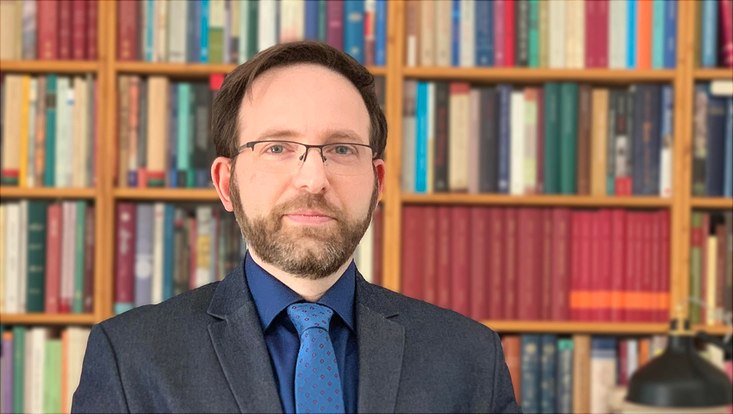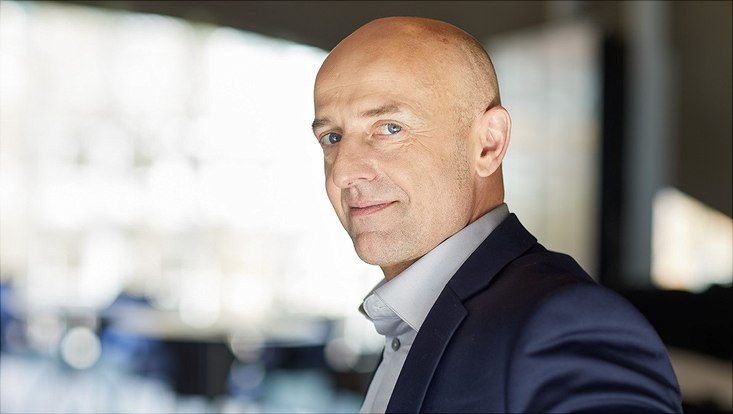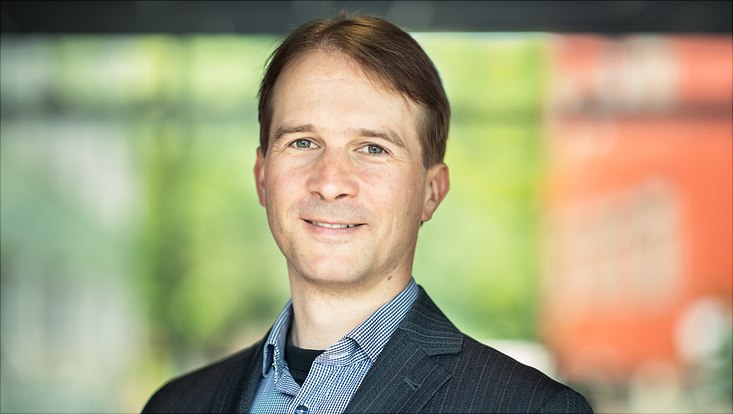“Welcome Aboard!”“I hope that my historical research also contributes to solving today’s societal conflicts.”Prof. Dr. Shervin Farridnejad strengthens the humanities.
2 September 2022, by Farridnejad / Newsroom

Photo: H.Tehrany/Berlin
Every year, Universität Hamburg welcomes numerous new researchers. This series introduces them and their areas of research. This time: Linguist and Iranian studies scholar Prof. Dr. Shervin Farridnejad, who, among other things, now strengthens the Cluster of Excellence Understanding Written Artefacts
In the summer semester, Prof. Dr. Shervin Farridnejad left Freie Universität Berlin and the Austrian Academy of Sciences in Vienna to join the Faculty of Humanities, the Centre for the Study of Manuscript Cultures, and the Cluster of Excellence Understanding Written Artefacts as a professor of Iranian studies and the history, language, and cultures of the Middle East.
My research area in 3 sentences:
I focus primarily on the languages, religions, and written artefacts of Iranian-speaking peoples since Antiquity and their continuing impact into the present. I look especially at religious traditions in Zoroastrianism and Iranian Judaism, with a major focus on the spiritual and material culture of Zoroastrians and the Iranian and Persian-speaking Jews in Iran, Central Asia, and India as well as in the western diaspora. Concretely, I am currently working on a linguistic and religious study of the traditions in Zoroastrian literature in modern Persian between the fifteenth and eighteenth centuries.
At the same time, I am also interested in the history and society of the Persian-speaking world, which now extends far beyond the borders of today’s Iran and includes Tajikistan, Uzbekistan, Afghanistan, and Pakistan up through India in the east and regions in Armenia, Azerbaijan, Georgia, Turkey, Iraq, and western Syria.
This is how I explain my research to my family:
Like a detective uncovering a mystery, I practice philology with a religious and historical focus at 3 levels—the manuscripts are the corpora delicti! First, I illuminate the material composition of the manuscripts and documents. Then, I examine their linguistic and literary features, meaning I have to decode, read, translate, and annotate them. On the basis of my discoveries, readings, translations, and collected facts, I reconstruct and explain the history of a text and thus the story of a specific religious or cultural society, or even an era.
I am always interested in how we can revive or grasp an unknown, forgotten, or little-researched society or era based on literary and material cultural goods.
In Hamburg, the city and the University, I am looking forward to:
In my first encounters, I already got to know people in Hamburg as open and polite and I immediately felt welcome. I was also kindly welcomed by my colleagues at the University right away. I anticipate a challenging and varied research and teaching environment at Universität Hamburg. I am looking forward to my work in the Faculty of Humanities and the Centre for the Study of Manuscript Cultures, where I see a lot of opportunity and potential for important scholarly cooperation.
I am also looking forward to Hamburg’s culturally diverse and international landscape, Hamburg museums, theater, opera, and the Elbphilharmonie. With the Elbe and the Alster Lake, the proximity to water makes Hamburg something special for me! I grew up between different cultures and in this context, Hamburg strikes me as a very vibrant and colorful city where I can feel at home and I am looking forward to discovering this kind of city.
These are my plans at Universität Hamburg:
I would like to more firmly establish Iranian studies in the Faculty of Humanities with my research. This includes lively activity at the Centre for the Study of Manuscript Cultures and the Cluster of Excellence Understanding Written Artefacts, where I want to get involved with my many research interests, and network with a host of international researchers working on Iranian and Persian-speaking manuscript cultures.
I would like to use my knowledge to offer my students a more diverse spectrum of subjects in the history, languages, religions, and culture of Iran and the Iranian-influenced landscape. As a teacher, I would like to impart to my students above all very sound scholarly methodology for understanding and analyzing challenges in the scholarly encounter with the “Orient” and its connections to their future work.
This is why students should come to my lectures:
I find both professional and personal exchange with my students very inspiring and above all the special experience of learning together in a course. Students can expect in my courses both classic philological exercises involving us working together to examine literary texts in minute detail and critical scrutiny of the way texts work and shape our culture and social phenomena.
With regard to content, I would like to work out a systematic and scholarly way of thinking as a teacher by balancing theory and practice. My subject area focuses mostly on languages and written artefacts, history, society, and intellectual and material culture. Iranian studies in the German-speaking world originally primarily focused on philology, and there are good reasons for that. Nonetheless, I am convinced that today, we must integrate and apply methodological approaches and findings from other disciplines such as religious studies, the social sciences, law, literary studies, ethnology, and gender studies. This will be an important topic especially for anyone interested in modern and contemporary Middle East research.
In my courses, I try to interest students, for example, in how cultural and historical continuity and change in the old high cultures of the Middle East work in detail and how this knowledge from other geographical places and historical eras can help us better understand and explain fundamental questions today. Students should also learn how human beings aware of themselves and the world make decisions, handle problems and challenges, and how they behave in certain situations.
My invitation to students is to critically probe central historical, social, and even spiritual questions about our subject together. The special challenge posed by the humanities is to examine and question prevailing ways of thinking from new perspectives. That is exactly what I would like to impart in my teaching via Middle Eastern literature, history, and culture.
Reaching out to the world: I work with the following international and federal institutions and universities:
In the past years and in my current projects I have already established many research contacts—throughout Europe, in Great Britain, and North America, but also in Iran and India—through which I regularly correspond with researchers and members of the Zoroastrian and Jewish communities. In addition to these research projects, there are also international and interdisciplinary publications, guest lectures, conferences, and summer school programs. So it is especially important to me to initiate continued cooperation with international colleagues and to invite them to Hamburg.
My research is important for society because:
We can justifiably ask ourselves what studying old, distant, even “exotic” cultures can mean for life in Europe in the twenty-first century. My research could contribute, for example, to making the culture and history of the high cultures of the Middle East from Antiquity to the present—which have deeply influenced our own modern European culture—more understandable and tangible. Many essential questions or incipient conflicts facing us today resemble the questions and conflicts facing people in “other” cultures. To understand ourselves, it is sometimes helpful to see ourselves in the mirror of other people.
I also hope that my research contributes to solving and allaying today’s social conflicts and that it helps us develop a clear language for the purpose of dialog. Iran and the world it has shaped, as important parts of the Middle East, are often deemed the “cradle of civilization” and they have been of central significance in the development of agriculture, art, cities, mathematics, science, and western religious traditions. The region gave rise to, among other things, the first settled villages and proto-urban settlements, the first written languages and manuscript cultures, monumental architecture, foreign trade, and centralized states. Following the emergence of Islam in the seventh century and the prevailing Islamic culture, the region nonetheless remained highly diverse with regard to language, religion, and ethnic identity.
The scholarly approach to this diversity and the ambiguities that result should help us, ideally, to better shape the relationship between us and our society and the “others.”


